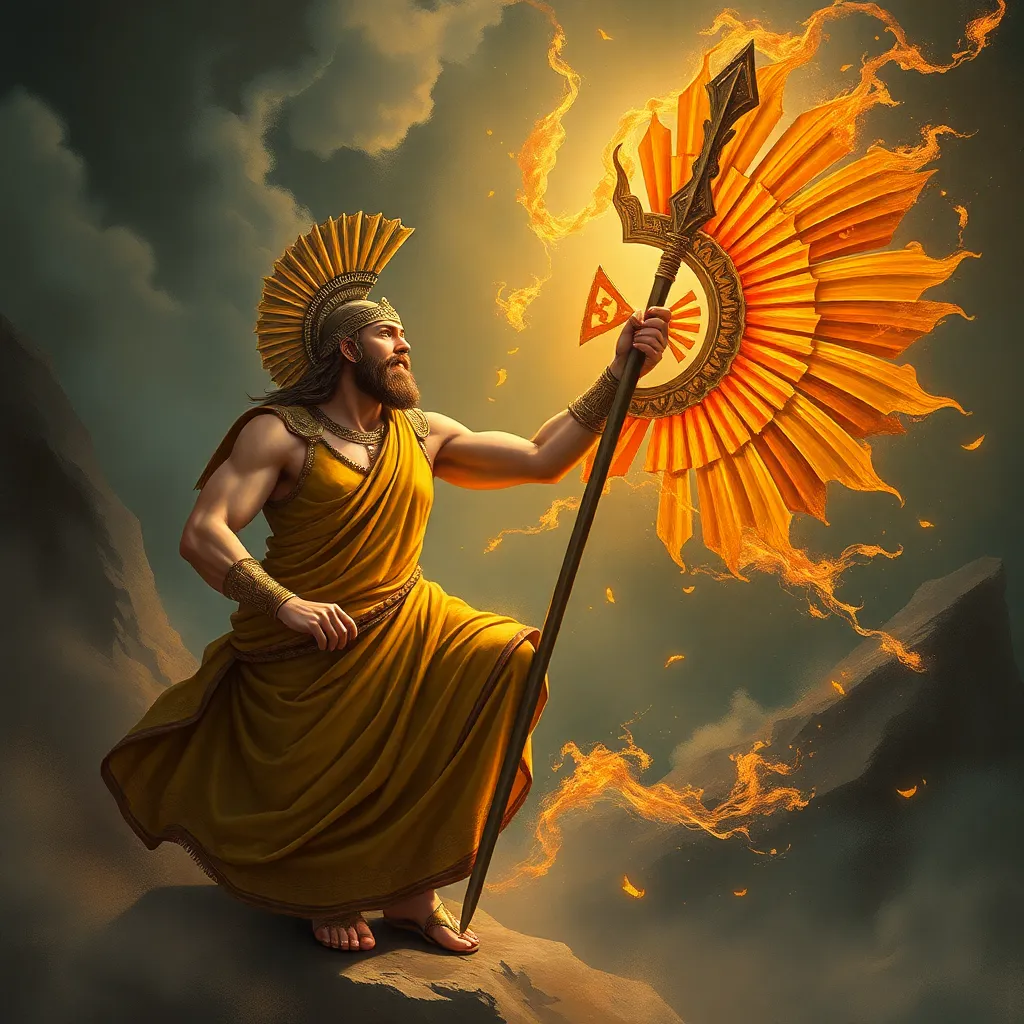Ares and the Role of Women in His Myths
I. Introduction
Ares, the Greek god of war, embodies the chaotic and violent aspects of conflict, often contrasting with the more strategic and honorable representations of warfare found in other deities such as Athena. While his character is often focused on aggression and destruction, exploring the role of women in Ares’ myths reveals a complex interplay of influence and representation. This examination seeks to highlight how female figures, both divine and mortal, shape the narratives surrounding Ares and contribute to the broader themes of war and peace in Greek mythology.
II. Ares: The God of War
Ares is one of the Twelve Olympian gods and represents the brutal and tumultuous nature of war. Unlike Athena, who symbolizes wisdom in battle, Ares is often depicted as a fierce and bloodthirsty warrior, reveling in the chaos of conflict. His attributes include:
- Strength and aggression
- Armor and weapons, often depicted with a spear and shield
- The accompaniment of fear (Phobos) and terror (Deimos)
In ancient texts, Ares is portrayed as both a figure of fear and a source of strife. His significance in Greek mythology is underscored by his frequent associations with battle and his less favorable reputation among the other gods. The Iliad, for example, illustrates Ares’ chaotic nature and the destruction he causes on the battlefield.
III. Notable Female Figures in Ares’ Myths
Several key female figures are associated with Ares, each contributing unique perspectives and narratives to his mythology. Some of these notable characters include:
- Aphrodite: The goddess of love and beauty, known for her passionate relationship with Ares.
- Harmonia: The daughter of Ares and Aphrodite, symbolizing harmony and often seen as a counterpoint to her father’s warlike nature.
- Enyo: A goddess of war who is sometimes depicted as a companion to Ares, embodying the destructive aspects of conflict.
These female figures play crucial roles in the narratives surrounding Ares, often serving to highlight the dualities of love and war, as well as the varied implications of conflict.
IV. Aphrodite: The Love and War Connection
The relationship between Ares and Aphrodite is one of the most famous in Greek mythology, representing a complex union of love and war. Their affair results in the birth of several children, including Phobos and Deimos, who personify fear and terror. This relationship carries rich symbolism:
- Duality of Nature: The juxtaposition of love and war illustrates the intertwined nature of these concepts.
- Impact on Narratives: Their relationship affects not only their lives but also the larger schemes of the gods, influencing events such as the Trojan War.
- Representation of Human Experience: Their passionate yet tumultuous love reflects the complexity of human emotions and relationships amidst conflict.
The connection between Ares and Aphrodite challenges the traditional understanding of war, suggesting that love can exist even in the most violent of contexts.
V. The Role of Mortal Women in Ares’ Myths
Mortal women also feature prominently in Ares’ myths, often serving as catalysts for conflict or embodiments of the consequences of war. Notable examples include:
- Alcyone: Her story weaves themes of love, loss, and the impact of Ares’ wrath, particularly in the context of her relationship with Ceyx.
- Hippolyta: The Amazon queen, who represents strength and warrior spirit, showcases the dichotomy of femininity and martial prowess.
These mortal women demonstrate how individual experiences and perspectives contribute to the overarching themes of war and conflict in Ares’ narratives, often revealing the personal costs of warfare.
VI. Women as Symbols of War and Peace
In the context of Ares’ mythology, female figures often symbolize the duality of war and peace. For instance:
- Aphrodite: As the goddess of love, she represents peace and harmony, counterbalancing Ares’ violent tendencies.
- Harmonia: Her birth from Ares and Aphrodite symbolizes the potential for reconciliation between conflict and harmony.
This duality emphasizes that women in Ares’ myths can embody both the destructive and nurturing aspects of human experience, reflecting the complexities of war and its effects on society.
VII. Interpretation of Female Roles in Ares’ Myths
Feminist interpretations of Ares’ myths have evolved over time, providing new insights into the roles of women within these narratives. Key points of discussion include:
- Re-evaluation of Agency: Many female figures can be seen as agents of their own destinies, challenging traditional portrayals of women as mere victims or passive figures.
- Evolution of Roles: The roles of women in mythology have changed, reflecting broader societal shifts in the understanding of gender and power dynamics.
- Modern Perspectives: Contemporary interpretations often seek to reclaim female voices within these stories, highlighting their importance in the mythological canon.
These discussions reveal that female figures in Ares’ myths are far from one-dimensional; they serve critical roles that shape the narratives and themes of war and conflict.
VIII. Conclusion
Ares, as the god of war, provides a rich tapestry through which to explore the roles of women in Greek mythology. From the passionate connection with Aphrodite to the warrior spirit embodied by mortal women, the narratives surrounding Ares reveal the complexities and dualities inherent in themes of love, war, and peace. The examination of these female figures not only enhances our understanding of Ares but also speaks to the broader implications of women’s roles in mythology. As we reflect on these narratives, it becomes evident that the impact of these stories endures, inviting further exploration into the intricate relationships between gender, power, and mythology.
https://www.youtube.com/watch?v=MssKQOstgCY




